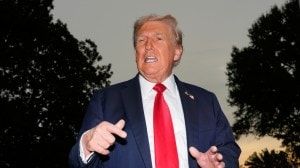Nuke face-off: Crucial days ahead for Govt
As standoff with Left intensifies, Govt faces a crucial week that could decide fate of N-deal and lead to collapse of coalition.

As a standoff with its Left allies intensifies, the Government faces a crucial week that could decide the fate of a civilian nuclear deal with the United States and lead to the collapse of the ruling coalition.
The Left has threatened to withdraw support from the ruling coalition in parliament if Prime Minister Manmohan Singh forges ahead with a deal he sees as one of his most important diplomatic achievements.
With time running out for the deal to be approved before President George W Bush leaves office, there are increasing signs Singh wants to go ahead with the accord even if it leads to the collapse of his coalition and early elections.
CPM has given one of its clearest warnings yet.
“In case the government decides to go ahead with such a harmful agreement,” Prakash Karat, the party’s head, said on Sunday, “the CPI (M) will withdraw support to the UPA government in concert with the left parties.”
That scenario could lead to months of political uncertainty and electioneering, jeopardising the chances of decisive government measures to deal with record inflation, rising rates and signs of a slowing economy.
A flurry of meetings are scheduled this week by the government, its non-Left allies and Left parties. The PM is reported to have insisted the government make a final decision before he heads for a G-8 summit in Japan on July 7.
Sonia Gandhi, the ruling Congress party head, called over the weekend for party workers to prepare for elections. While elections are due by May 2009, the timing of her statement was seen as the clearest indication yet of preparing for a snap poll.
“The party has to get ready for polls and everybody has been asked to draw up programmes,” senior Congress party official Janardan Dwivedi told reporters at the weekend.
If the left withdraws support, the ruling coalition will likely face a vote of confidence in parliament. If it fails to find another party to replace the Left it could lose the vote and face general elections this year.
DESPERATELY SEEKING SUPPORT
The Congress is looking for support from the regional party Samajwadi Party (SP) led by Mulayam Singh, to try to replace the Left parties if they leave.
Cementing that alliance could embolden the government to ignore the Left and finalise the deal.
But it may all be too late for the pact with the United States, which Singh agreed in principle with Bush in 2005.
The accord still needs clearances from the International Atomic Energy Agency and 45-nation Nuclear Suppliers Group, procedures that could take months.
Then it would have to go to the US Congress for final approval before the end of Bush’s term.
Singh sees the deal giving India access to U.S. nuclear fuel and technology and allowing closer trade and diplomatic ties with Washington. Left sees India becoming a pawn of Washington.
But a snap poll is not inevitable and last year the government backed down from the brink when confronted by the Left.
An early election would come at a hard time for Congress and its allies. Inflation is at a 13-year-high and Congress has already lost a string of state elections this year.
An election in May could give the government more time to sort out inflation, a key concern of voters.



- 01
- 02
- 03
- 04
- 05



























